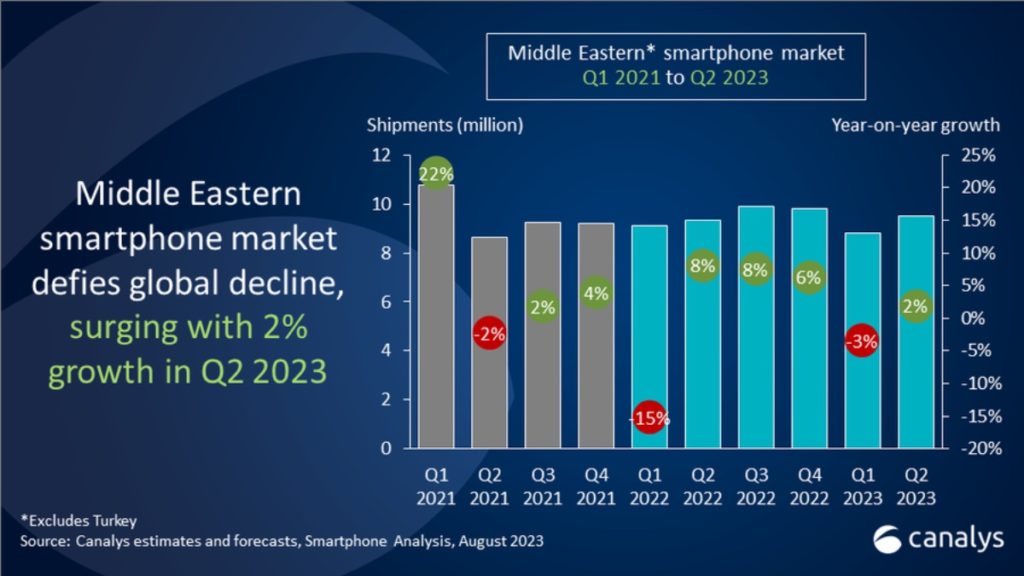Vendors shipped 9.5 million smartphones in the Middle East (excluding Turkey) in quarter two (Q2) 2023, representing 2% annual growth at a time when the worldwide market fell by 10%, according to new data from Canalys. And it was mixed news for Apple.
“In Q2 2023, both Apple and Samsung saw a decrease in shipments of premium segment smartphones in the Middle East, a result of cautious consumer spending and increased interest in budget alternatives,” says Manish Pravinkumar, senior consultant at Canalys. “Despite a 9% drop, Samsung retained its top spot, largely thanks to the success of its A series models, including the A24 and A14, in the more budget-friendly segment. Meanwhile, Apple continued to dominate the premium market, but saw most of its shipments concentrated on the iPhone 12 and 13 models due to budget-conscious consumers.”
Overall, the Middle East (excluding Turkey) improved economically, aided by the surge in global oil prices along with record-low unemployment, expansion in non-oil sectors and significant FDI inflows, notes Canalys. Saudi Arabia’s smartphone shipments in Q2 2023 grew by 19% year on year due to strong macroeconomics, non-oil sector expansion and vendors replenishing distribution channels for the Eid and Ramadan sales season, adds the research group.
The United Arab Emirates (UAE) grew by a modest 6% in Q2 2023, driven by an influx of tourists. The country’s airports saw a surge in the arrival of passengers amid festivities. Iraq, notably, is emerging steadily, overcoming economic challenges and currency fluctuations to achieve substantial 24% growth in smartphone shipments.
On the other hand, Israel suffered a 19% drop in smartphone shipments due to rising inflation and cautious consumer spending. Families, dealing with higher living costs, are using their current devices for longer. Kuwait and Qatar, smaller markets that received less than half a million smartphone shipments each, were hit by declines of 15% and 23% year on year respectively, due to low consumer demand.
Article provided with permission from AppleWorld.Today

